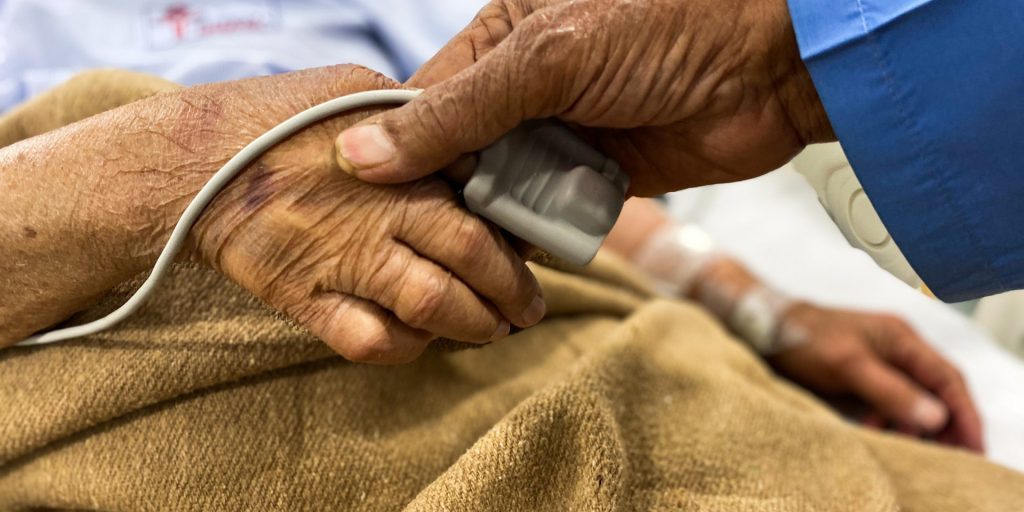Ageism in health care: how patients can recognize and combat the problem

By: Edmonton Seniors Coordinating Council staff
Ageism is a form of discrimination that we all may face, or unintentionally perpetuate, at some point in our lives. It refers to how we think, feel, and act towards someone on the basis of their age.
Ageism can take many forms across the course of a life, but is most often associated with older adults. In fact, the World Health Organization (WHO) estimates that one of every two people are ageist against older people.
The problem goes beyond the individual level – we also see ageism in our systems. One of the most notable being health care. The WHO says limiting certain health services based on age is “widespread” and the impacts are far reaching. Ageism not only influences how patients are viewed in the health care system, the WHO says it can be associated with a shorter lifespan, an increased risk of violence and abuse against older people, and even costs society billions of dollars.
It is a pervasive problem, but one that groups around the world are exploring ways to tackle. One example locally is Age Friendly Edmonton (AFE), which is an initiative of the Edmonton Seniors Coordinating Council. A key focus of AFE is finding ways to address ageism in our community, and it begins with arming older adults with information. Recently, AFE hosted a Lunch ‘n’ Learn exploring the issue of ageism in health care.
Presenter Dr. Donna Wilson, a University of Alberta professor, told attendees the demands of older adults on our health care system are grossly exaggerated. “80 per cent of people who are admitted to Alberta hospitals each year are under the age of 65,” she explained. “That’s the research I’ve done.”
Dr. Wilson’s work involves a lot of myth busting. Using population data and various mixed methods, her research focuses on health services and health policy as it relates to aging, ageism, and end of life care.
Wilson told the group that some of the most noticeable examples of ageism in health care are when patients are provided with minimal to no care, or inappropriate care.
“Physicians, sometimes nurse practitioners, and pharmacists do not offer health care to people that they think will not benefit from it,” she stated. Wilson pointed to data indicating people over the age of 80 rarely get organ transplants, aggressive cure-orientated cancer treatments, or ICU admissions. “They have an ethical responsibility, especially in Canada, to be careful about how they dole out on health care…. It isn’t just individual health care providers, but it’s organizations like hospitals and health care systems that actually do use age as a care criterion… that’s not an appropriate criterion.”
So, how can patients avoid ageism when accessing health care and still get the proper care they need?
First, it’s important to recognize the signs. Some examples, laid out by Regis College, include health care providers acting less patient, less engaged, less responsive to issues raised by the patient, and more likely to not explain details of an illness to a patient. Depending on the doctor’s conduct, the patient may consider reaching out to a regulatory body, such as the College of Physicians and Surgeons of Alberta.
Dr. Wilson stresses avoiding complacency. “Notice it, start looking for it… just draw attention to it.” She adds that keeping some statistics in your back pocket will bring a dose of reality. Good starting points include the Public Health Agency of Canada and the Canadian Institute for Health Information.
Dr. Wilson also encourages people to form or join advocacy groups against ageism in health care, whose efforts can raise awareness and influence policy.
Ultimately, it boils down to being proactive wherever possible. “Canada is certainly being impacted by population aging,” says Dr. Wilson. “It’s a time really to notice and combat ageism in health care and elsewhere.”



